On November 18, 2022, the McGill Interdisciplinary Initiative in Infection and Immunity (MI4) held its 4th Annual Scientific Symposium at the McGill Faculty Club, in front of an audience of past and current McGill leaders, faculty members, researchers and trainees, as well as clinicians and members of the biomedical industry.
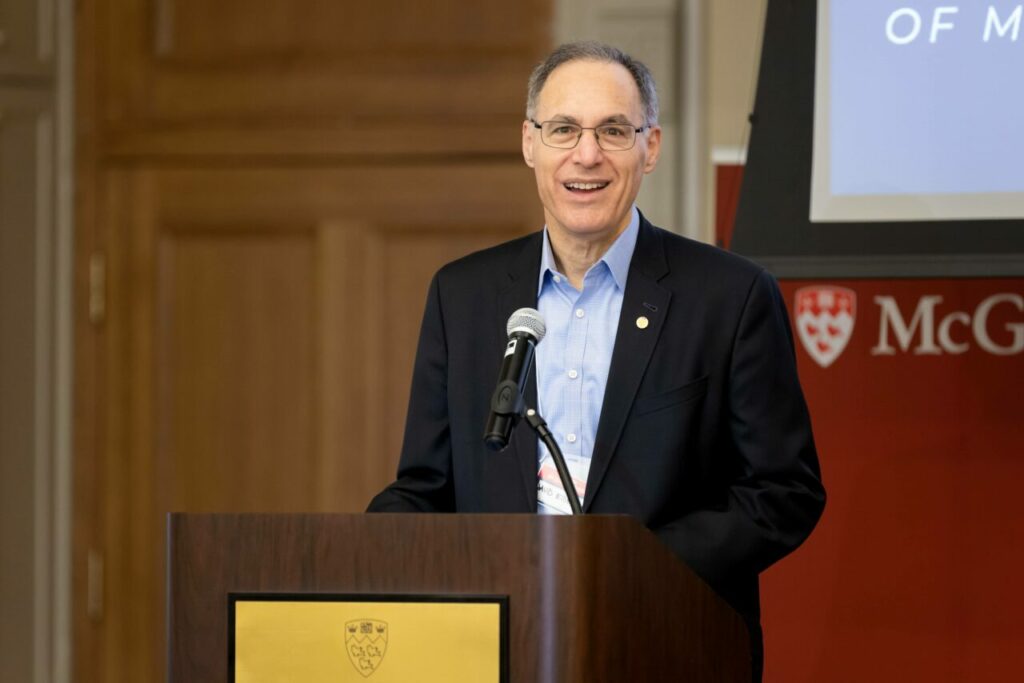
David EidelmanDavid Eidelman, MDCM, Vice-Principal (Health Affairs and Dean of the Faculty of Medicine and Health Sciences at McGill University, highlighted the role of MI4 as innovators in terms of how research is conducted at McGill.
“MI4 remains one of the jewels in our little crown of greatness, in the Faculty of Medicine and Health Sciences, and I look forward for MI4 to go from strength to strength,” said Dr. Eidelman.
MI4’s Director, Marcel Behr, MD, opened up the event by sharing MI4’s exciting redefined scope focusing on microbial threats to human health as a way to continue innovating.
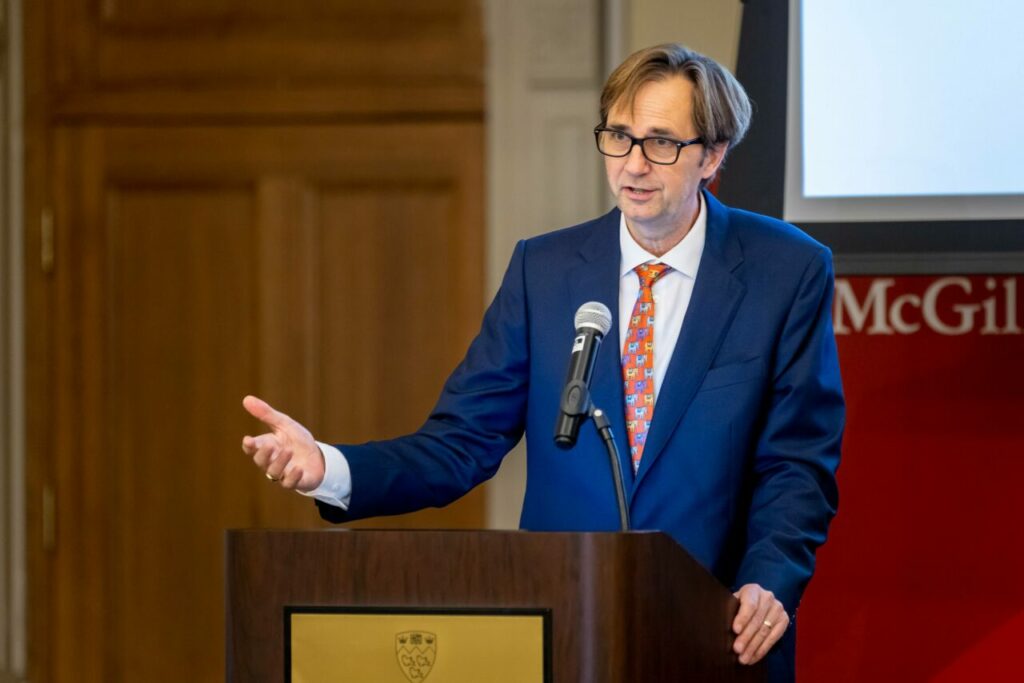
“Going forward, we’ll have three major themes: pandemic threats, antimicrobial resistance and microbes that shape human health. We’ll continue to offer the same seed fund grants, programs for teams with big ideas and co-funding to get outside support,” said Dr. Behr.
Dr. Behr explained how MI4’s leadership found a formidable opportunity to redefine the initiative’s scope, ahead of its fifth anniversary, after meeting with its external advisory board and members of the McGill community, earlier in 2022.
“The question is whether our compass should take us in a new direction in 2022. The more I think about it, we’re a strategy initiative. We make teams, we support platforms, we build partnerships.”
As part of the MI4 updates, Dr. Behr also announced MI4’s fifth Seed Fund Grant, which will align with the three new thematic areas, as well as the online publication of MI4’s 2021-2022 Annual Report.
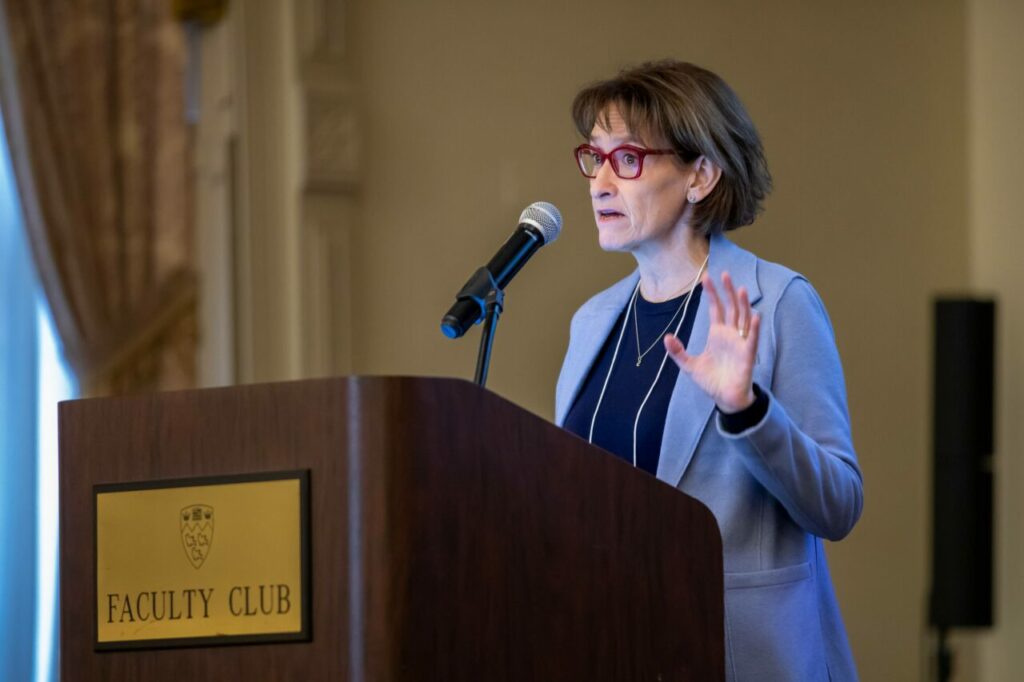
This year’s event, held under the theme of Interdisciplinary approaches to pandemic preparedness, featured a keynote lecture by Carole Jabet, PhD, Scientific Director of the Fonds de Recherche du Québec – Santé (FRQS), entitled From managing pandemic risks to adapting to a new reality: the FRQ’s vision and actions.
Ms. Jabet discussed the impact of the aging population on the health system and the challenges this issue brings, as increasing life expectancy creates a need to revisit how we keep the Quebec population healthy.
“Most of the time, we put research in opposition to innovation, however, we need to bring them together. The context is good to make society move, and take the benefit of what we generate as knowledge.”
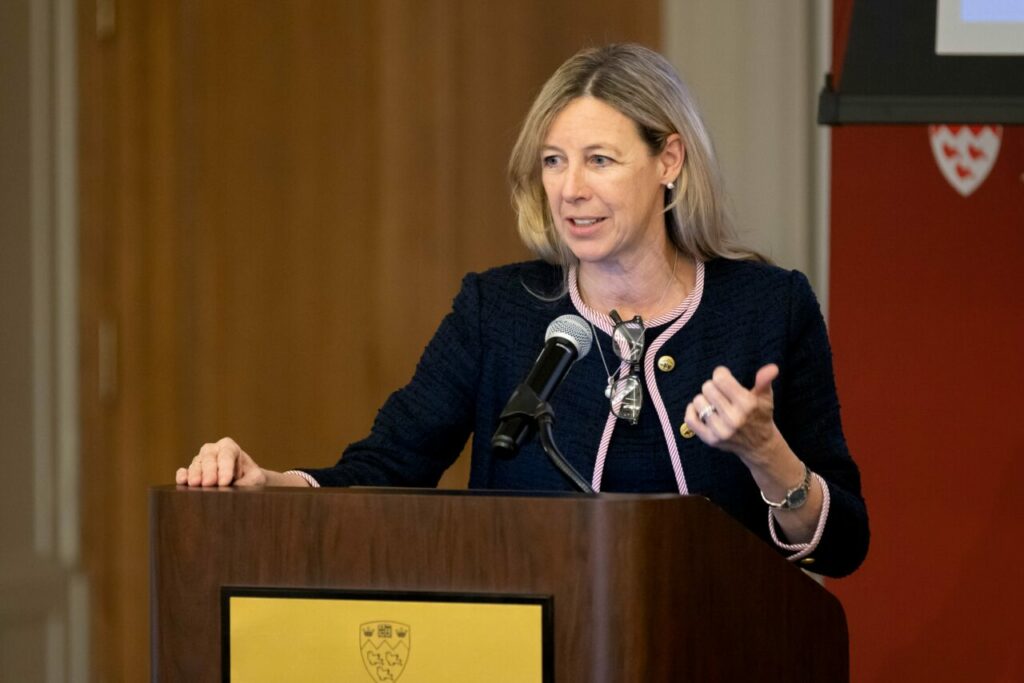
MI4’s Co-Director, Marie Hudson, MD, moderated the question period and asked Ms. Jabet about the idea of citizen science, and how can scientists, experts at the nano-level, zoom out, to put the citizen at the center of health research.
“Everybody should be able to be a specialist in their own discipline, but also to stay open to understanding what others are doing. Then you end up becoming a generalist specialist, and this helps to dialogue with other citizens,” said Ms. Jabet.
The Globe and Mail’s Health Columnist, André Picard, interviewed Joanne Liu, MDCM, Director of the Pandemic and Health Emergency Readiness Lab and Professor at the School of Population and Global Health, to discuss her experiences with pandemic preparedness.
“We’ve always talked about the risk of a global pandemic, but it was always in the background. Was the COVID-19 pandemic inevitable?” asked Mr. Picard.
“Outbreaks becoming epidemics is inevitable. What is preventable is to have an epidemic become a pandemic. One of the things we’re trying to tell the world is if we prepare ourselves properly, we can make it the last pandemic,” said Dr. Liu.
Dr. Liu, a former International President of Médecins sans Frontières, said the issues related to how the COVID-19 pandemic was handled can be traced back to the lack of preparation.
“We didn’t do the drill. We ended up focusing on late indicators, like the hospitalization rates, instead of the early indicators, like testing people.”
As part of its focus on the theme from molecules to patients to populations, three MI4-funded experts also presented talks at the symposium.
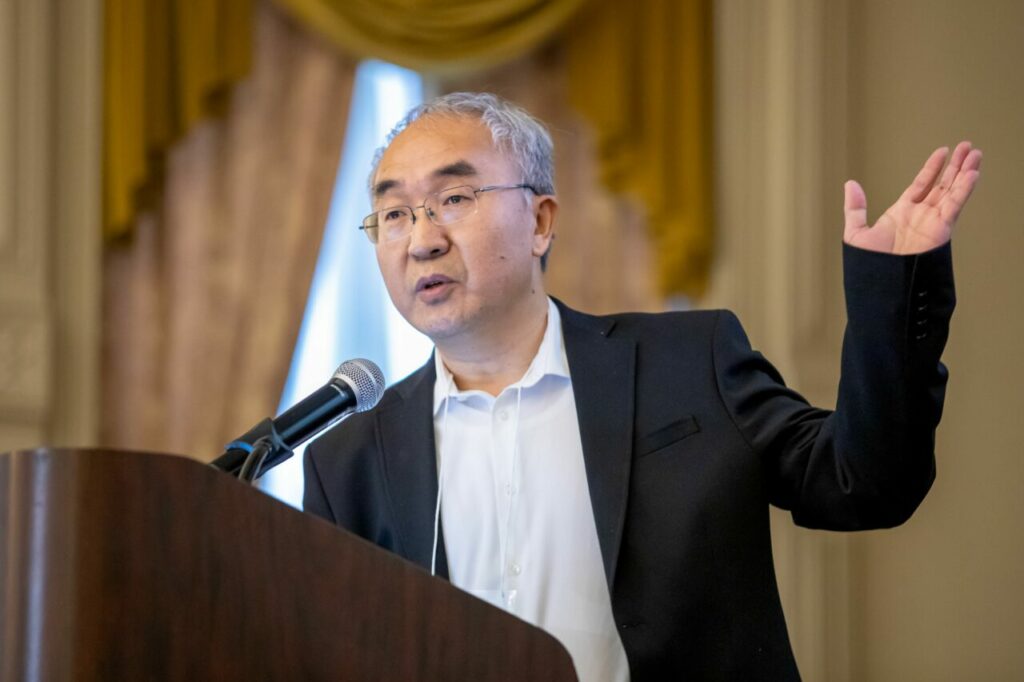
In his presentation, Chen Liang, PhD, Director of the McGill Centre for Viral Diseases and Professor at the Departments of Medicine, Microbiology & Immunology, shared perspectives on pandemic preparedness through the lens of virology.
“I cannot stress enough the importance of quickly isolating and sequencing the pandemic’s viruses, because, without the sequencing, there will be no vaccines, no diagnostics, no molecular surveillance and no antiviral drugs,” said Prof. Liang.
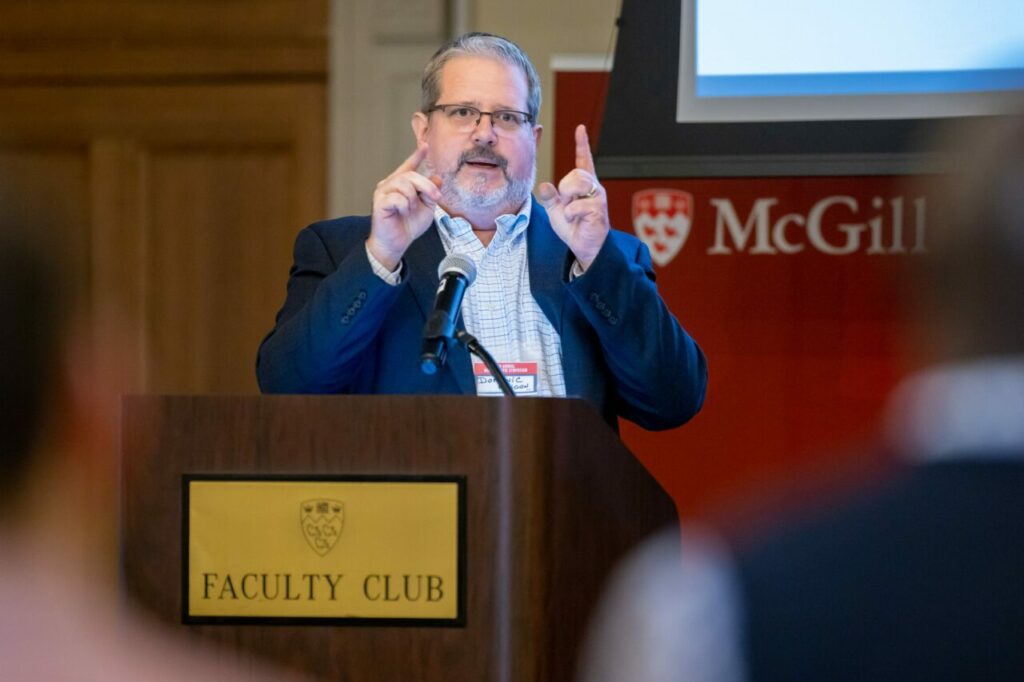
Dominic Frigon, PhD, Associate Professor of Environmental Engineering, Civil Engineering, shared his research work in COVID-19 wastewater surveillance, with the McGill community.
Prof. Frigon says the wastewater data increased the accuracy of predicting COVID-19 health outcomes.
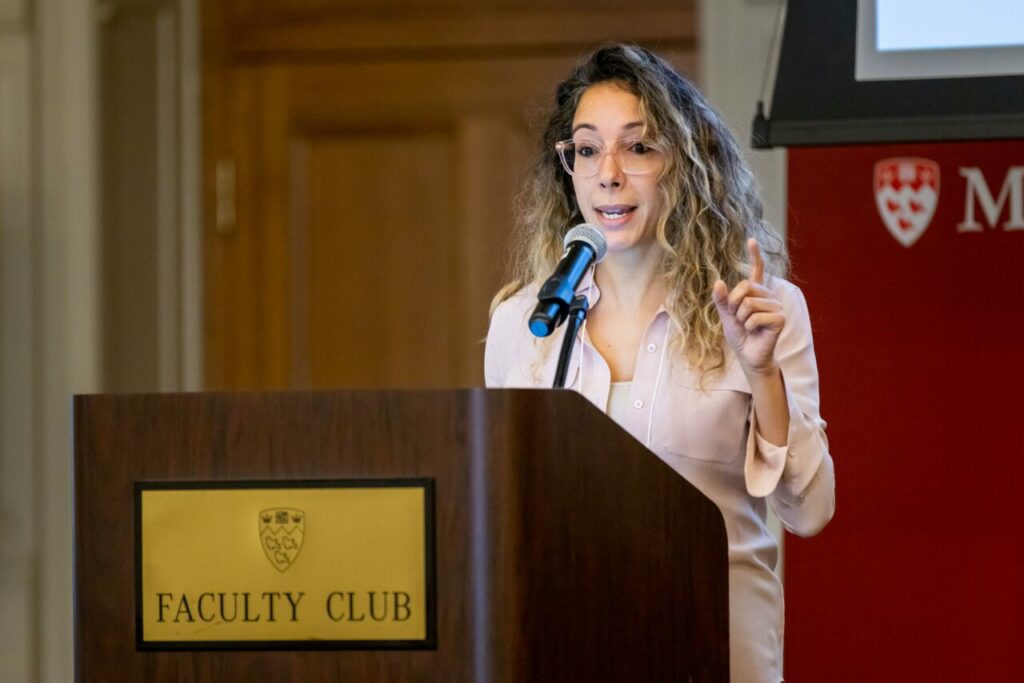
“We did sequencing at different levels, and we compared the detection of different variants. Understanding how the virus changes is important to actually understand the signals and also to how do I design my surveillance system, and how do I gain better sensitivity for what I want to do,” explained Prof. Frigon in his talk, Wastewater Surveillance: Building the Toolbox for a Scaled Response to Outbreaks and Pandemics. Sapha Barkati, MD, Assistant Professor, Division of Infectious Diseases, Department of Medical Microbiology and Division of Medical Microbiology, offered her perspective as a physician, on pandemic responses, by using the 2022 monkeypox outbreak in Montreal as an example.
“In terms of clinical management, we were able to collaborate with other clinics in Montreal that were seeing cases of monkeypox. We reached out, we provided information on the clinical features of the disease, and this led to an improvement of the infection’s testing and control,” said Dr. Barkati.
Dr. Barkati says the key ingredients in fighting the monkeypox outbreak were leadership, expertise, strong collaborative networks and strengthened research capacity.
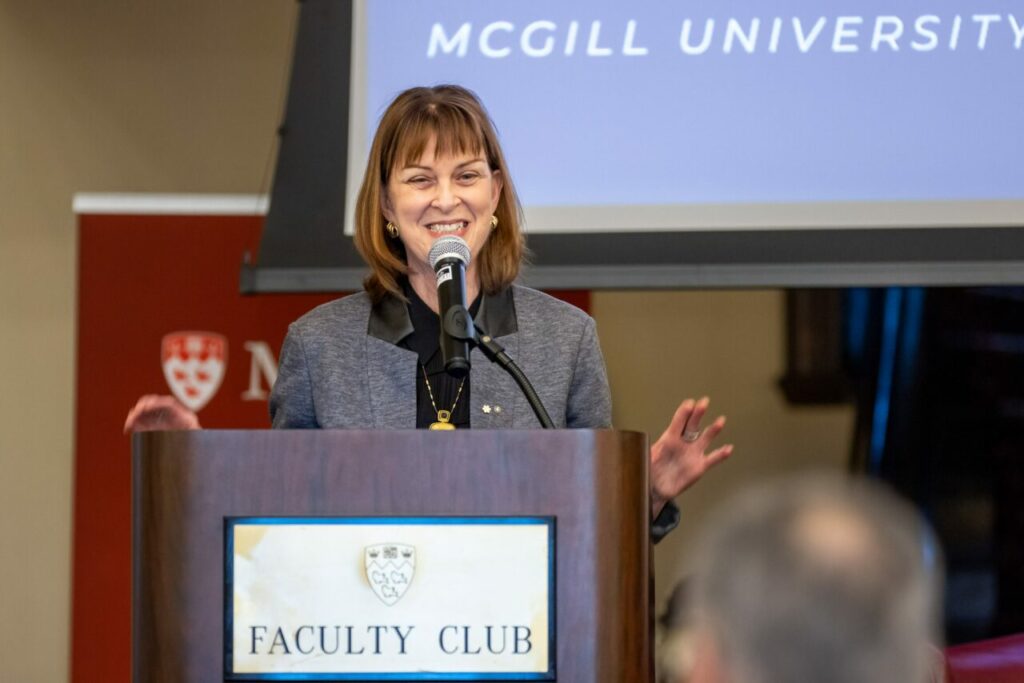
The human importance was also highlighted as part of the MI4 strengths by Heather Munroe-Blum, PhD, MI4’s Senior Advisor & Emerita Principal and Vice-Chancellor at McGill University.
“It’s a substantive exercise of great people, working together, across disciplines, in a really organic way, to say how do we get the most out of what we can do together, to deal with these big issues facing humankind,” said. Prof. Munroe-Blum.
This year, MI4’s Scientific Symposium also included two additional activities. On November 17, the MI4 community was joined by Vratislav Hadrava, MD, PhD, Vice-President & Medical Director of Pfizer Canada, for a special pre-symposium cocktail, with members of the greater MI4 community and winners of the two editions of our MI4 Pfizer Early Career Investigator Award. This event launched the symposium with exceptional and energetic discussions between MI4 community members, as well as McGill and MUHC colleagues.
Following the scientific component of the symposium, on November 18, André Picard joined the MI4 community for a special masterclass on pandemic news coverage. This bonus event was a unique opportunity for McGill students, researchers, medical professionals, leaders and communicators, to gather in one room and discuss challenges related to scientific communication.
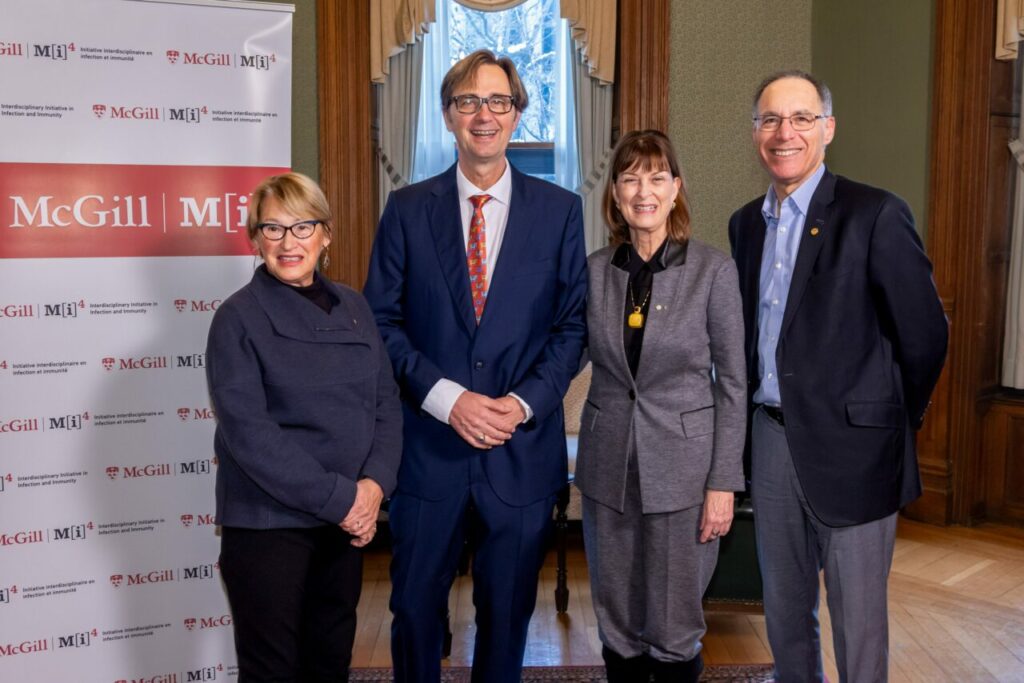
MI4 would like to thank all organizers, participants, guests, speakers, students, staff, faculty, technicians and photographers who contributed to the success of the event. We are incredibly grateful for your support and participation. Stay tuned in the New Year for updates from MI4’s leadership on the new direction we’re taking!
Photos by Owen Egan and Joni Dufour
Related:
McGill Interdisciplinary Initiative in Infection and Immunity
